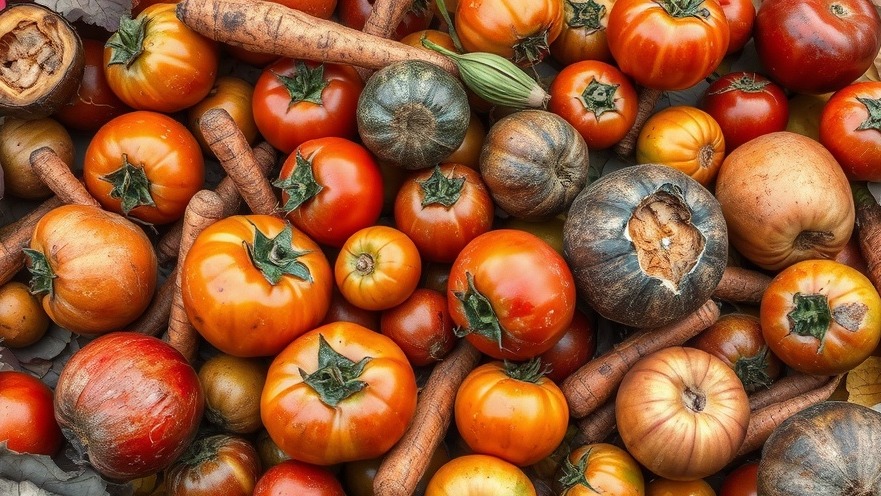
The Hidden Costs of Food Waste in the UK
Every year, UK consumers waste a staggering £17 billion worth of food, amounting to around £1,000 per household. This waste not only represents a financial loss but also incurs an estimated £500 million in costs for local councils to manage bin collections. Despite heightened awareness around food waste, progress in reducing these numbers has been minimal over the past decade. Today's figures are only slightly lower than those recorded in 2012, indicating a disturbing plateau that contradicts initial downward trends.
The Impact of Unpredictable Events
Several factors influence these statistics, as evidenced by the fluctuating graph trends. Notably, the Love Food Hate Waste campaign, launched in 2010, initially contributed to a significant drop in food waste. However, the global financial crisis of that era brought a newfound perspective on waste, as households tightened budgets and became increasingly aware of their spending.
Fast forward to the pandemic, and food waste saw an unprecedented spike. With families cooking more meals at home, many experienced the phenomenon of surplus food — meals typically consumed out of home at schools or workplaces now went into residential kitchens. The pandemic's impact on household dynamics has illuminated the volatility in food waste statistics, rendering comparisons across different years challenging.
Economic Pressures: A Double-Edged Sword
Recently, the rising cost of living has caused many to reevaluate how they approach food waste. In 2022, the surge in food prices—driven by factors such as geopolitical tensions and climate-related crop failures—prompted consumers to become more mindful of what they toss. As budgets tighten, people are increasingly attentive to every pound spent, with food waste once again at the forefront of public consciousness.
The Road Ahead: Solutions in the Making
The future may hold solutions for this complex issue, particularly with the introduction of mandatory separate food waste collection by councils starting March 2026. Early indications suggest separating waste generates awareness, with studies showing individuals are often unaware of the amount they discard. Since 78% of people believe they waste less than average, visible tracking of waste may influence behavior significantly.
It’s important to remember that food waste is not solely an individual issue; it’s a systemic problem shaped by various socio-economic factors. Where we shop, how food is marketed, and even kitchen designs all factor into food waste dynamics. Therefore, a collaborative effort involving legal regulations around food packaging, sell-by dates, and consumer education will be essential.
Taking Personal Action: Steps Toward a Sustainable Future
As consumers, we hold power in tackling this issue. Simple steps, such as meal planning, understanding expiration dates, and repurposing leftovers, can dramatically cut down personal food waste. As we prepare for necessary systemic changes, let's also focus on personal strategies that contribute to broader sustainability goals.
By challenging our preconceived notions of waste and investing effort in sustainable practices, we can turn the tide on food waste. It’s about more than just saving money; it’s about preserving our planet for future generations. And as we often say in the hospitality industry, a little mindfulness goes a long way.
 Add Row
Add Row  Add
Add 




Write A Comment